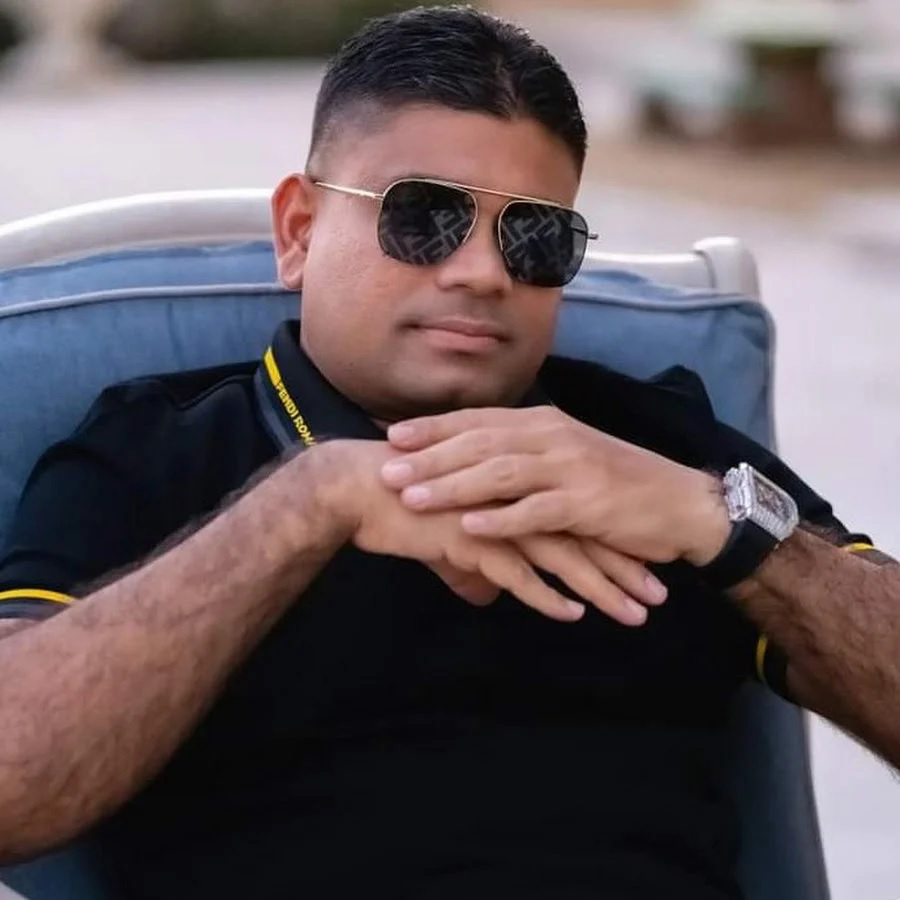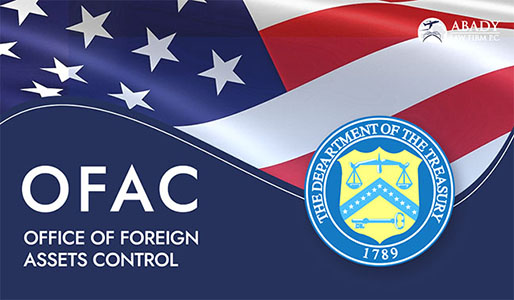The personal and business accounts at local commercial banks of businessmen Azurrudin and Nazar Mohamed were closed almost immediately following the announcement of sanctions by the United States Department of the Treasury, sources close to the banking sector say.
It was explained that the banks notified the businessmen and the end of doing business with them went smoothly.
Insurance companies followed suit and regulatory agencies here understand that “all of the entities in the financial sector that were doing business with the Mohameds have stopped doing so” a source told the Sunday Stabroek.
This newspaper understands that the Mohameds did not hold personal accounts with the banks but “their transactions were mostly business related.”
Permanent Secretary of the Ministry of Labour Mae Toussaint Jr. Thomas has personal accounts at two commercial banks, this newspaper understands, and her salary is paid into one, however, it is unclear if the banks have also closed those accounts. Given that she is currently on leave and is still entitled to her salary, it is also unclear how she will be paid, given that public sector salaries are paid by cheque or direct bank deposits.
The moves by the banks on the Mohameds, it was explained, was to safeguard them as quickly as possible against any risks of being associated with a sanctioned person, as that comes with severe repercussions.
“The banks here don’t operate in isolation. They are heavily dependent on correspondent banks in the US and their services…given that those financial institutions have to act immediately or face the consequences in their country, it is only safe for those here to also act, yes, even without first being told anything…,” one source said.
A correspondent bank is a third-party financial institution that acts as an intermediary between domestic and international banks. Correspondent banks effectively act as an agent of a foreign bank to conduct business transactions with the domestic bank on its behalf.
They use a system network, such as the Society for Worldwide Interbank Financial Telecommunications (SWIFT), a global messaging network of over 11,000 financial institutions, which banks can use to send instructions, such as details for wire transfers.
Correspondent banks had already been in short supply here as many of them had ceased operations in the Caribbean over the last 20 years for fear of exposure to money laundering and other risks.
President Irfaan Ali has said that the government has since suspended all business ties with the Mohameds, and that the information sought from US will help to assist and guide the local probe. The Cambio licence of the Mohameds was revoked by government but his gold dealer’s licence is going through a process, he explained.
Questioned on the Mohameds’ gold dealer’s licence and the reason for their Cambio licence being revoked, but their gold licence remaining in place, Ali responded that everything goes through a process but that government had suspended doing all business with the Mohameds. He posited that maybe some processes take more time, and that government cannot operate without the requisite information.
“Everything is suspended. Let’s make this very clear; transactions with the Gold Board, everything. But as I said, there is a process. The rule of law is the rule of law. I don’t intervene in the process. There is due process in everything and that process is ongoing. Maybe one process is simpler to activate than the other process, but what you need to understand is that the substance of the sanctions, which is doing business, integrating with businesses, has been adhered to,” he said.
“Now the process of dealing with all of the existing licences, and all of these things, that is a process that the agencies are going through” he added.
DoJ
On the information sought from the US on the sanctions, the Government of Guyana has since been advised by the US that it would have to be sourced via the Department of Justice (DoJ) and could take some time.
The Ministry of Finance (MoF) also informed that it was advised that while this could be a long process, it should be aided by the fact that both Guyana and the US are signatories to the Inter-American Convention on Mutual Legal Assistance. Further, additional information was also shared with Guyana on the mutual legal assistance process.
The government has stated that it will now submit the request following the process advised.
Vice President Bharrat Jagdeo on Thursday had also pointed out that if a local financial institution here lost the relationship with their correspondent bank because of the sanctions, their business “basically becomes stymied.” If banks here choose to continue business with the sanctioned Mohameds, that country’s laws state that they may also face similar penalties.
On June 11, the United States Department of the Treasury’s Office of Foreign Assets Control (OFAC) imposed sanctions on the senior and junior Mohamed over the alleged massive smuggling of gold. Permanent Secretary in the Ministry of Labour, Toussaint Jr Thomas, was cited for alleged corruption leading to her being immediately sent on leave by the government here.
Now that the trio are under sanctions, all property and interests in property belonging to them that are in the United States or in the possession or control of US persons are blocked and must be reported to the Treasury Department.
And if they have more than 50 per cent interest in any other company, then those entities fall under the same sanctioning regime.
United States citizens and companies are now also prohibited from doing any transactions with the trio along with financial institutions globally, as they expose themselves for similar sanctions.
“As a result of today’s action, all property and interests in property of the designated persons described above that are in the United States or in the possession or control of U.S. persons are blocked and must be reported to OFAC. In addition, any entities that are owned, directly or indirectly, individually or in the aggregate, 50 percent or more by one or more blocked persons are also blocked. Unless authorized by a general or specific license issued by OFAC, or exempt, OFAC’s regulations generally prohibit all transactions by U.S. persons or within (or transiting) the United States that involve any property or interests in property of designated or otherwise blocked persons,” the US Treasury Department explained in the release.
“In addition, financial institutions and other persons that engage in certain transactions or activities with the sanctioned entities and individuals may expose themselves to sanctions or be subject to an enforcement action. The prohibitions include the making of any contribution or provision of funds, goods, or services by, to, or for the benefit of any designated person, or the receipt of any contribution or provision of funds, goods, or services from any such person,” it adds.
But the Department of Treasury explained that the power and integrity of OFAC sanctions, “derive not only from OFAC’s ability to designate and add persons to the SDN [Specially Designated Nationals] List, but also from its willingness to remove persons from the SDN List consistent with the law.”
It said that the ultimate goal of sanctions “is not to punish, but to bring about a positive change in behaviour.”
Attorney General, Anil Nandlall SC, has said that he does not believe that the United States’ sanctions on the Mohameds and Toussaint Jr. Thomas, will have negative repercussions for Guyana’s Anti-Money Laundering (AML) image. He boasted that Guyana’s AML architecture is stellar and evidence of this is a “clean bill of health” by the AML/CFT regional regulatory body, the Caribbean Financial Action Task Force (CFATF).
“Guyana just went through a test, an evaluation exercise by the internationally authorised agency for this region, that is the CFATF, and Guyana‘s financial system and AML/CFT architecture acquitted itself well after a two-year gruelling and interrogative scrutiny and detailed examination. Which included a two-day face-to-face engagement where 200 experts scrutinized our legislation, our policies, our structures, our commitment, and our effectiveness. We were questioned for two days, at the end of the process, we received a clean bill of health, and our AML/CFT received a clean bill of health. That is our current status as certified by the authorized regulatory agency for this region”, he said.
Moreover, Nandlall asserted that “Guyana continues to demonstrate its will and its commitment to combat organised crimes and protecting its financial system by immediately responding to the disclosures made by the United States.”










